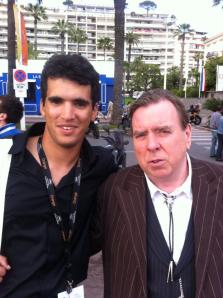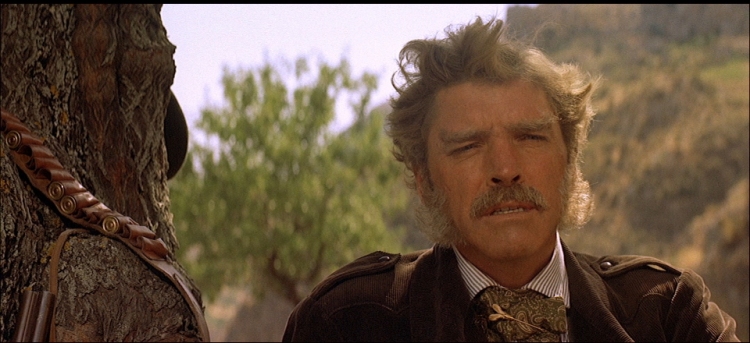So, as my last post explained, I had spent the last two and a half weeks at the 67eme Festival du Cannes. I had a great time throughout, having finally reached a place that I’ve always wanted to visit and meeting and networking with as many people as possible and watching films I had no clue at all about.
I had a lot of fun and felt like I learned a lot and made some good connections. It was an incredible experience and I finally figured out what I wanted to do in the industry and what I wanted to never sink towards in the industry. It was a very eye-opening affirming experience.
But ain’t nobody got time for that. You guys want to know about the movies I saw.
BEST FILM I SAW AT CANNES
Sophie (2014/dir. Liz Fisher/USA) – An adorable short film I saw as part of a collective feature screening that had a story very poignant and resonant to even adults who have to realize they grow up and find the world changing around them – only this time communicated in the form of an 8-year-old child discovering simply that the Easter Bunny and Santa and the Tooth Fairy don’t exist and having an existential crisis resultant from it, making it accessible to all possible ages. Sweet, funny and pretty much a surprising treat of a film I didn’t expect after having to endure an otherwise almost entirely lackluster collection of short films…
WORST FILM I SAW IN CANNES
Bourbon in the Bathtub (2014/dir. Sara Kubida & Andrea Hall/USA) – This being one of those lackluster short films. A practically nonsensical and pretty much boring stream of consciousness of storytelling, it seems as though the short was assembled through bits and pieces of conversation I’d expect the writers overheard and tried to shove context, while forcing quirk through the eye-rolling setting of having the two central characters sit in a bathtub drinking bourbon for the majority of the short and call it romantic. I almost dozed off, my friend actually did.
BEST DIRECTOR
While the Jury is not considering really short films for the awards (while I gave my best film to a short film), I still have to give Best Director to Sarah Wilson Thacker for The Bright Side. A surprisingly ambitious short that lends itself fully to the romantic imagery of 1940s Hollywood, balancing naturalistic cinematography with an otherwise pretty cut-and-dry romantic story. Add to that how much the visuals lend themselves to the mood and editing to the tempo of the music used, especially when I got pumped up by the usage of The Killers’ “Mr. Brightside”, and we got something pretty extraordinary.
And I’m not just saying this because I met both the director and cinematographer, Ryan Broomberg, beforehand. But that’s worth acknowledging and noting that it has no weight on my opinion.
My friends know I’m too brutal.
BEST ACTOR
I thought Timothy Spall was fantastic in Mr. Turner, but he didn’t take the cake for me. And as much as I would like to say Robert Pattinson’s role in The Rover made me forget the fact that I made fun of him for the many Twilight-ridden years, my real heart goes to Steve Carell for Foxcatcher. I went into the movie blind to what it was about, but upon hearing the name John Du Pont and Mark Schultz, I already knew the story that the film was going to depict.
I only find it a genius of craft to have had John du Pont portrayed in such a manner as to make the character at first glance slightly humorous (as many of the audience members I was with were laughing at otherwise disturbing moments) until the fact of his mental disruption brings drastic consequences. When a character can be so consistently make you laugh to make gasp, I find it to be a great manipulation to be recognized, especially when it doesn’t seem uncharacteristic.
BEST ACTRESS
I’ll go with what the Festival went with and big it up to Julianne Moore for playing wasted so well in Cronenberg’s Maps to the Stars. Even when it’s nothing we haven’t seen before from her, she has fit herself so well into the shell of trashy and washed-up (just as well as she can be elegant or cleaned up) that by this performance around we get a deeper look inside this persona than we usually could stand.
BEST SURPRISE
Mommy (2014/dir. Xavier Dolan/Canada) and White God (2014/dir. Kornel Mundruczo/Hungary). If you had told me that the best feature films in Cannes would have been a movie about a violent ADHD child and The Birds as done with dogs, I would have laughed in your face. But goddamn, did both turn out to be freshly done and engaging as can be with less than enticing concepts. I have to say Xavier Dolan is especially going places considering his age and how many features he has made already.
BIGGEST DISAPPOINTMENT
Lost River (2014/dir. Ryan Gosling/USA) – I have the most to say about this one movie…
I really really wanted to like it. I thought it was a valiant effort by Gosling to pay homage to Refn and Lynch (both Gosling and Refn were in attendance by the way). But what Gosling seemed to fail to realize was that Lynch and Refn are inspired by thematic undertow before inventing a style to their films – its what makes Lynch one of my favorite filmmakers… That he decides what he wants to say and then how he wants to say it afterward.
Gosling seemed to be more inspired by stylization before inventing a style based on it. The result is a film with a plot that could have been condensed in 40 minutes as opposed to two hours, lacking any true thematic substance beyond hammering down its basic caged bird overtures.
Benoit Debie can do a hell of a lot better. While there were some pretty good looking shots as always from him, but there are also some that I’m sure were forced by Gosling, sideways looks and oversaturations that dare you to be infuriated but by the end of the movie are just annoying. The transitions though are very great, with each transition meant to deliberately jar us – a testament to an editing style that had its ups and downs. The self-indulgent nature keeps popping up in the film’s technical aspects and it definitely dilutes any damn I could have given the film.
Speaking of editing, I hope whoever did sound for the movie was fired as fuck. And if it was deliberate, I hope Gosling never directs another movie. I had to read the French subtitles half the time to understand the film. This is amateur work akin to a 4 year old child on a god damned mixing board or film school graduates who spent too much time on the imagery to realize there’s more to cinema than that.
The cast was mainly inconsequential to me – Saoirse Ronan, Ben Mendehlson and especially Matt Smith are the main standouts that kept the movie from feeling like a rehash of Blue Velvet. Smith was a definite presence of foreboding dread and shock that calls to Hopper’s Frank Booth without feeling plagairistic.
And I did like the music. Hints of Badalamenti and Cliff Martinez that I’d like to have on my IPod, even if its obvious in the movie and supposed to be apparent, something I find obnoxious when it comes to scoring films.
FILM I CAN’T WAIT TO WATCH AGAIN
The Target (2014/dir. Chang/South Korea) – South Korean cinema is obviously making a huge comeback in the international scene and The Target, while not being anything really as mindblowing as Thirst, Memories of Murder or The Good, the Bad, the Weird still kept my adrenaline running and was fast-paced in all the right amounts and yet not too long or short.
MOVIE I WAS MOST LOOKING FORWARD TO SEEING BUT DON’T THINK DESERVED THE PALME D’OR
Winter Sleep (2014/dir. Nuri Bilge Ceylan/Turkey) – My love for Once Upon a Time in Anatolia left me immensely anticipating the next picture of Ceylan’s. While it was essentially presented in the same sort of material (sleepy little dialogues that reveal characters while also working as their own little monologue vignettes), this movie didn’t really have a primary plot to keep the conversations interconnected this time around and, while still remaining an impressive movie, didn’t engage me half as much. I honestly feel its win is mainly political in consideration of the Gezi conflicts and the mining disaster (as well as the fact that it is the 100th anniversary of Turkish cinema).
BEST MOMENT(s)
I met Timothy Spall and realized that he’d probably win Best Actor for the delightful film Mr. Turner right then and there and I saw Quentin Tarantino introduce Pulp Fiction for its 20-year anniversary from winning the Palme d’Or (though I still maintain Kieslowski should’ve won that award, Pulp Fiction is always a hell of a lot of fun to watch – especially with friends).
WORST MOMENT(s)
Our trip was at one day severely dampened by bad news one of my companions received and by my own bad attitude towards being ditched (either inadvertently) by another one at the Pulp Fiction screening.
With all that, I really enjoyed the hell out of the trip.
Can’t wait to make a new short film and go back next year. Dare I say, I might one day make a feature film to be entered there. Fingers crossed, always hoping.
Anyway, I also have now graduated and am now in the middle of working on multiple things more frequently to keep myself alive… But it also means an ability to post more, so expect me.

















